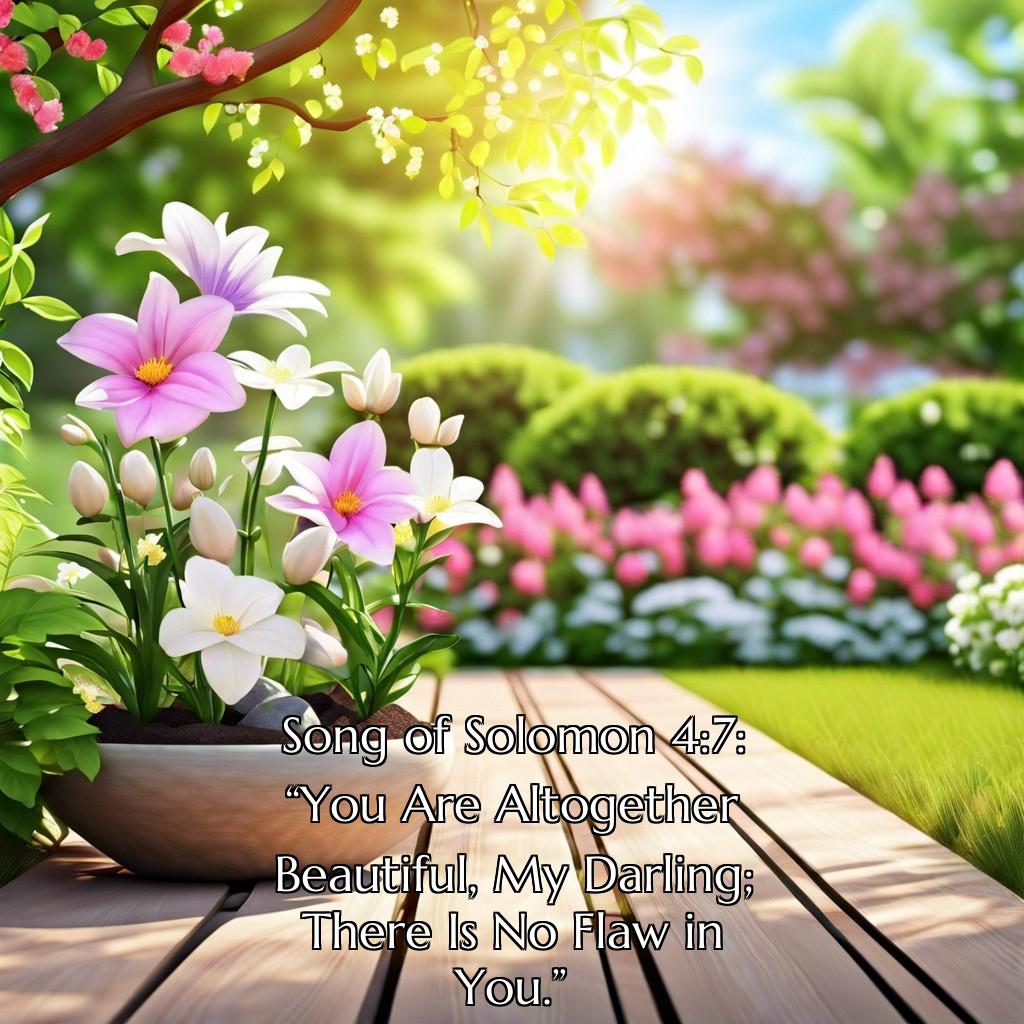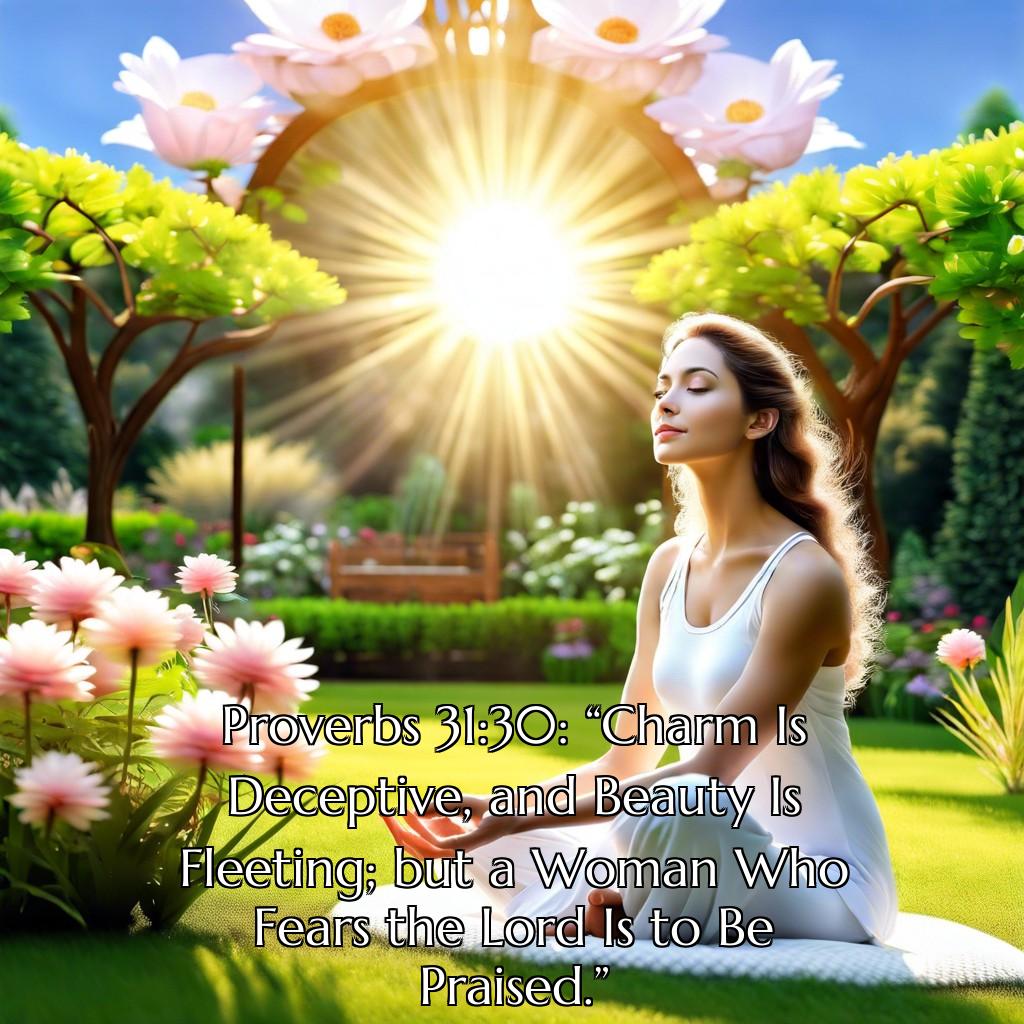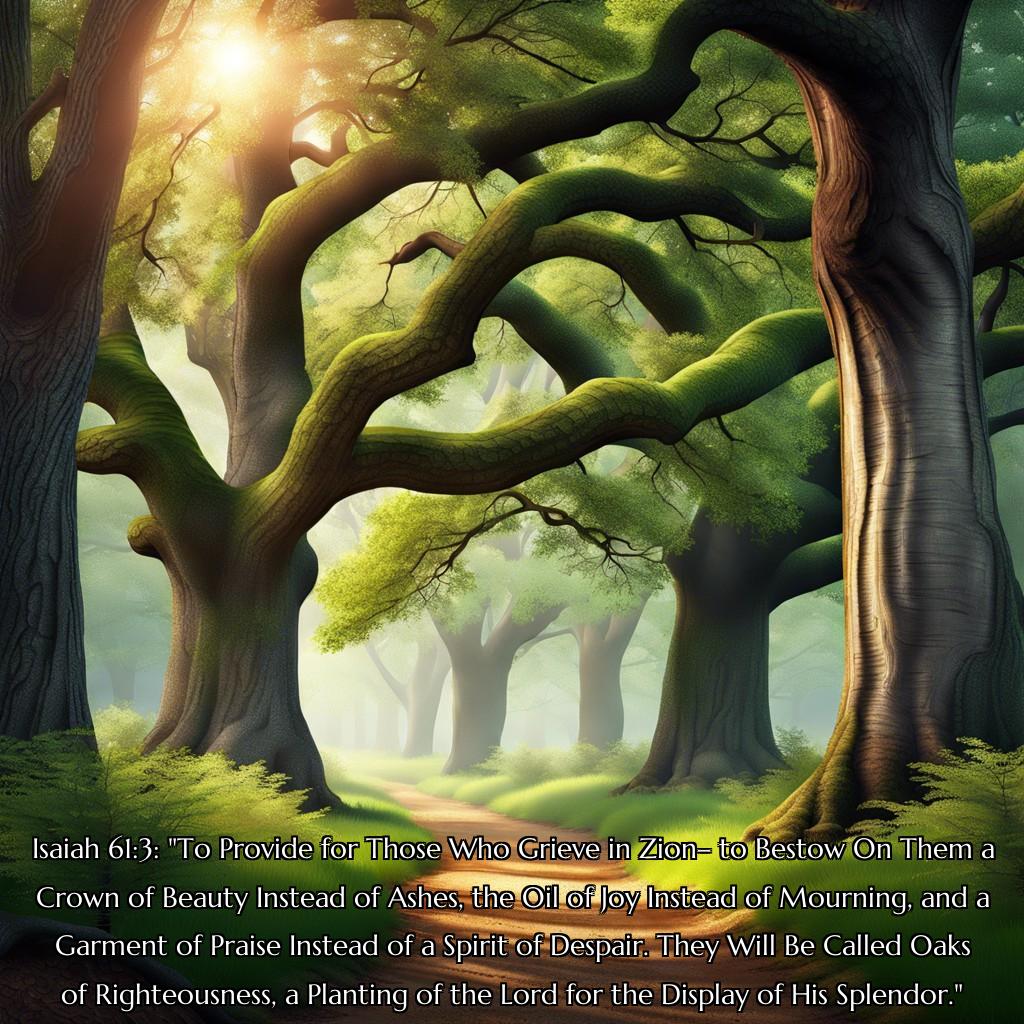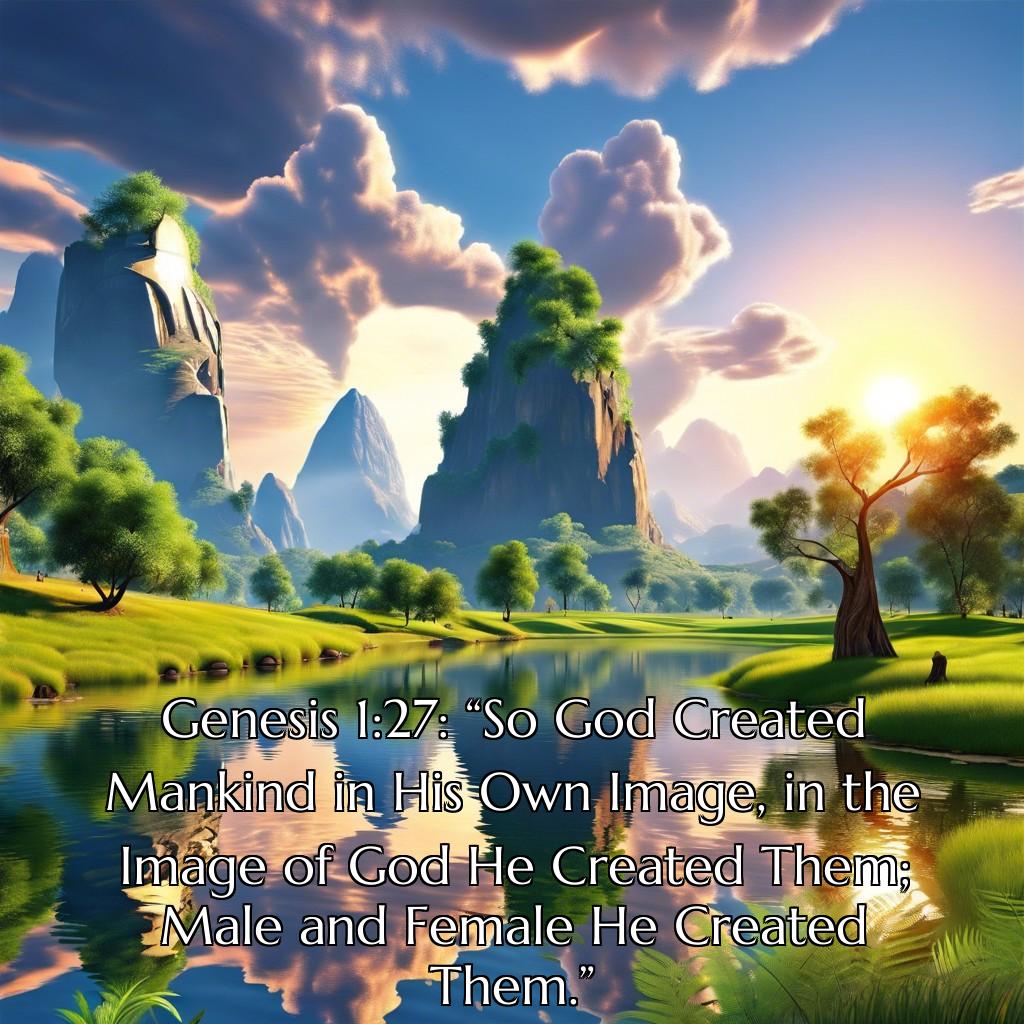This article provides a concise interpretation of ten Bible verses that speak about beauty, revealing its true essence according to Scripture.
In a world where external appearances are often glorified, the Bible offers a refreshing perspective on true beauty. This collection of scripture highlights that genuine beauty is much deeper than skin, rooting itself in character, spirituality, and our divine creation. Whether you seek reassurance, wisdom, or inspiration, these verses reveal the intrinsic worth bestowed upon us by God and invite us to appreciate an enduring, inward grace that transcends outward looks. Dive in to explore the divine essence of beauty as illustrated in God’s word.
Song of Solomon 4:7: “You Are Altogether Beautiful, My Darling; There Is No Flaw in You.”

This verse paints a powerful picture of complete and unconditional love. Here, the speaker sees no imperfections in their beloved, which symbolizes how love sees beyond flaws to the essence of a person’s intrinsic value.
First, it highlights the beauty that comes from being cherished. When someone is seen through the eyes of love, their beauty is magnified.
Additionally, it implies that beauty isn’t solely physical. It’s also about how one is perceived by someone who loves them deeply. This perspective inspires self-acceptance and confidence.
Lastly, this verse encourages us to look at others through this lens of love. Seeing others as beautiful and flawless nurtures positive relationships and fosters genuine connections.
1 Peter 3:3-4: “Your Beauty Should Not Come From Outward Adornment, Such As Elaborate Hairstyles and the Wearing of Gold Jewelry or Fine Clothes. Rather, It Should Be That of Your Inner Self, the Unfading Beauty of a Gentle and Quiet Spirit, Which Is of Great Worth in God’s Sight.”

This passage emphasizes inner beauty over outward appearance. It suggests that true beauty is not about wearing fancy clothes or intricate hairstyles. Instead, it points to the value of inner qualities like a gentle and quiet spirit.
Here are some key points:
- Inner Self: The verse highlights the importance of nurturing qualities that reflect calmness and gentleness.
- Unfading Beauty: Unlike physical beauty, these inner qualities do not deteriorate with age.
- God’s View: Traits like a gentle spirit hold immense value in the eyes of God, far surpassing physical adornments.
In essence, the scripture redirects focus from external beauty towards cultivating a heart that pleases God. This reveals a depth to beauty that goes beyond mere appearance.
Proverbs 31:30: “Charm Is Deceptive, and Beauty Is Fleeting; but a Woman Who Fears the Lord Is to Be Praised.”

Charm and physical beauty can be misleading. They are not enduring qualities. True beauty, according to this verse, is found in the fear of the Lord.
A woman who respects and reveres God is truly commendable. Such reverence reflects an inner strength and character that surpasses mere outward appearances.
Praising a woman for her faith highlights the value of spiritual beauty. It shifts focus from superficial traits to a profound, lasting quality. This also reminds us to cultivate inner virtues and spiritual depth.
Reverence of the Lord shapes a life marked by wisdom, kindness, and grace. These attributes are exceptional and worthy of admiration.
Psalm 139:14: “I Praise You Because I Am Fearfully and Wonderfully Made; Your Works Are Wonderful, I Know That Full Well.”

This verse acknowledges the Creator’s intricate craftsmanship in each individual. It implies a sense of awe about human creation, highlighting our intrinsic value.
Firstly, “fearfully” suggests a profound reverence and respect in the creation process. It speaks of God’s intentional care and attention to detail.
Secondly, “wonderfully made” conveys that each person is unique and crafted with a purpose. It’s a reminder that every individual has innate worth imbued by their Creator.
Lastly, recognizing that God’s works are “wonderful” encourages a sense of gratitude. It promotes a positive self-view, recognizing one’s body and being as divine artwork.
These points collectively invite us to appreciate our bodies not just for their physical aspects but for the divine intention behind their creation.
Isaiah 61:3: “To Provide for Those Who Grieve in Zion– to Bestow On Them a Crown of Beauty Instead of Ashes, the Oil of Joy Instead of Mourning, and a Garment of Praise Instead of a Spirit of Despair. They Will Be Called Oaks of Righteousness, a Planting of the Lord for the Display of His Splendor.”

Isaiah 61:3 paints a vivid picture of transformation and redemption.
This verse highlights three key exchanges:
Crown of beauty instead of ashes: Ashes symbolize mourning and repentance. God’s promise of a crown of beauty signifies restoration and honor.
Oil of joy instead of mourning: Oil in biblical times represented gladness and anointing. God intends to replace sorrow with joy and celebration.
Garment of praise instead of a spirit of despair: Clothing oneself in praise suggests an attitude change. It’s about embracing gratitude and worship instead of dwelling in hopelessness.
These transformations are not merely external but reflect deep, spiritual renewal, grounding believers in righteousness and displaying God’s glory to the world.
1 Samuel 16:7: “But the Lord Said to Samuel, ‘Do Not Consider His Appearance or His Height, for I Have Rejected Him. The Lord Does Not Look At the Things People Look At. People Look At the Outward Appearance, but the Lord Looks At the Heart.'”

God emphasizes the value of inner character over physical appearance. While society often judges based on looks, God looks deeper.
- Here are some key points:
- Inner qualities like kindness, humility, and faithfulness matter most to God.
- Superficial attributes are fleeting and less significant in God’s eyes.
- God’s focus on the heart means our intentions and spirits are vital.
- True beauty, according to God, is seen through our actions and love for others.
Emulating these inner virtues brings us closer to God’s vision of true beauty.
Genesis 1:27: “So God Created Mankind in His Own Image, in the Image of God He Created Them; Male and Female He Created Them.”

This verse speaks to the inherent dignity and value bestowed upon every human being. Here are key concepts to understand:
– Imago Dei: This Latin phrase means “Image of God.” Humanity’s reflection of God encompasses our spiritual, moral, intellectual, and relational capacities.
– Equality: Both male and female share this divine image, affirming gender equality and mutual respect.
– Purpose: Bearing God’s image implies purpose and responsibility, encouraging us to live in a way that reflects His character and love.
– Unity: Understanding that everyone is crafted in God’s image fosters a sense of unity and kinship among people.
In God’s design, beauty is more than skin-deep; it is rooted in our fundamental identity as His creations.
1 Corinthians 6:19-20: “Do You Not Know That Your Bodies Are Temples of the Holy Spirit, Who Is in You, Whom You Have Received From God? You Are Not Your Own; You Were Bought At a Price. Therefore Honor God With Your Bodies.”

This passage from Corinthians reminds us of the sacredness of our physical form. Our bodies are not merely vessels but temples housing the Holy Spirit. This understanding elevates the way we perceive and treat our bodies.
Firstly, it emphasizes respect. Recognizing our bodies as temples calls for treating them with care and reverence.
Secondly, it speaks to responsibility. We are caretakers of the gift God has given us, and by keeping our bodies healthy and pure, we honor this divine trust.
Lastly, it highlights belonging. We are reminded that we are not our own. We were bought at a great price, underlining our intrinsic worth and the importance of living in a way that reflects this divine investment.
Through these points, we see the profound relationship between our physical selves and spiritual purpose.
Matthew 6:28-29: “And Why Do You Worry About Clothes? See How the Flowers of the Field Grow. They Do Not Labor or Spin. Yet I Tell You That Not Even Solomon in All His Splendor Was Dressed Like One of These.”

Worrying about material things detracts from recognizing the natural beauty that God provides. Jesus uses the image of wildflowers, which grow effortlessly, as a powerful metaphor.
First, it emphasizes that true beauty doesn’t require human effort. Wildflowers bloom and thrive without labor, representing how natural beauty surpasses human-made adornments.
Second, the reference to Solomon, known for his wealth and splendor, highlights that even the richest human creations can’t compete with the simple, yet profound beauty of nature.
Lastly, it calls believers to trust in God’s provision. If God takes care of the flowers, He certainly will take care of us. We need not stress over our appearance or material possessions; instead, focus on spiritual growth and trust in His care.





